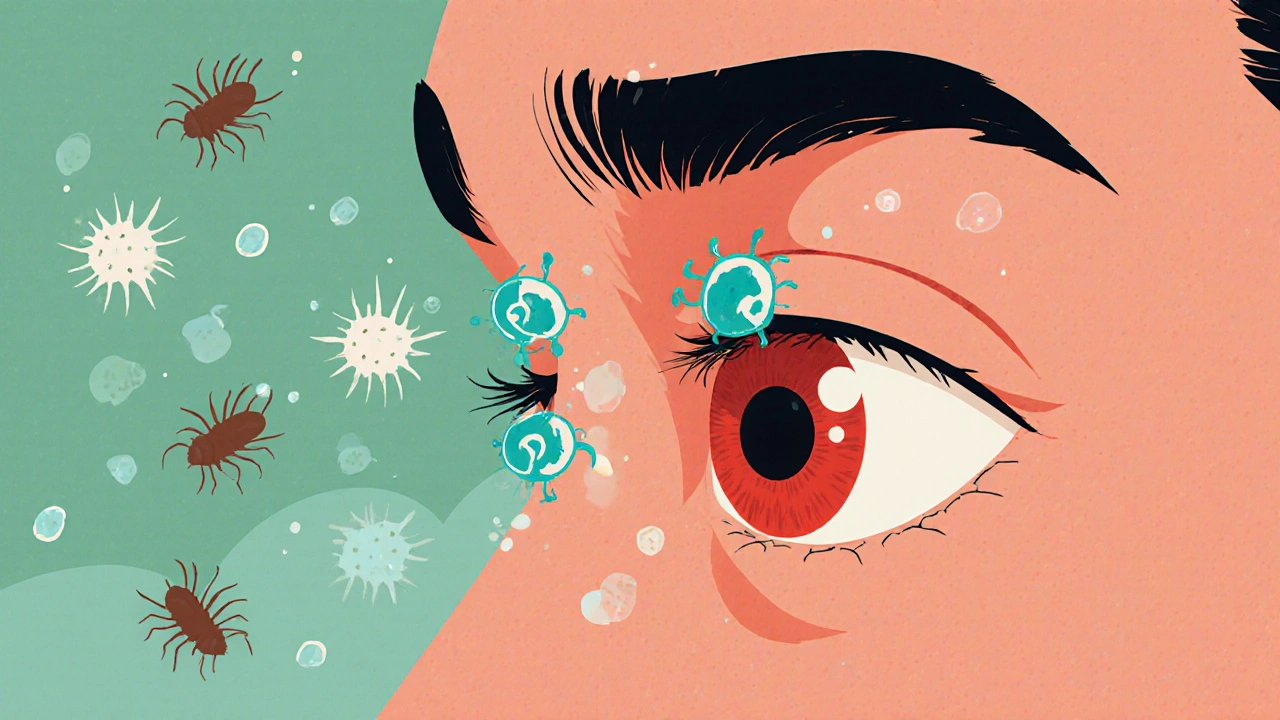Allergic Conjunctivitis: Causes, Triggers, and How to Find Relief
When your eyes turn red, itch like crazy, and water nonstop, it’s often not an infection—it’s allergic conjunctivitis, an immune reaction in the eyes triggered by airborne allergens. Also known as eye allergies, it’s one of the most common reasons people visit eye doctors—not because it’s dangerous, but because it’s so annoying. Unlike bacterial or viral pink eye, allergic conjunctivitis doesn’t spread from person to person. It’s your body overreacting to things like pollen, dust mites, mold, or pet dander. You don’t need antibiotics. You need to stop the trigger and calm the reaction.
Most people with allergic conjunctivitis notice symptoms during spring or fall, when pollen counts spike. But if you’re allergic to cats or dust, your eyes might bother you year-round. The itchiness is the biggest clue—people often rub their eyes, which makes it worse. Other signs include swelling, burning, and stringy mucus. It’s not just discomfort; it can mess with focus, sleep, and daily life. seasonal allergies, a broader condition affecting the nose and eyes often go hand-in-hand with allergic conjunctivitis. If your nose is runny and your eyes are red, you’re likely dealing with the same trigger.
What helps? Over-the-counter antihistamine eye drops, medications designed to block the chemical that causes itching and swelling in the eyes can give quick relief. Cold compresses, avoiding rubbing your eyes, and staying indoors on high-pollen days also make a difference. Some people find that switching to daily disposable contacts or using artificial tears helps wash away allergens. But if symptoms last longer than a week or get worse, it’s time to talk to a doctor—there are stronger prescription options, like mast cell stabilizers or steroid drops, that work when OTC fails.
What you won’t find in this collection are random posts about antibiotics or weight loss drugs. Instead, you’ll see real, practical advice on managing eye allergies—what works, what doesn’t, and how to avoid common mistakes. You’ll find comparisons of eye drops, tips for reducing allergen exposure at home, and how to tell if it’s really allergies or something else. This isn’t theory. It’s what people actually use to get through allergy season without scratching their eyes out.

How Allergic Conjunctivitis Connects to Immune System Disorders - Causes, Risks, and Management
Explore how allergic conjunctivitis is linked to immune system disorders, its causes, diagnosis, treatment options, and prevention tips for better eye health.
Read More